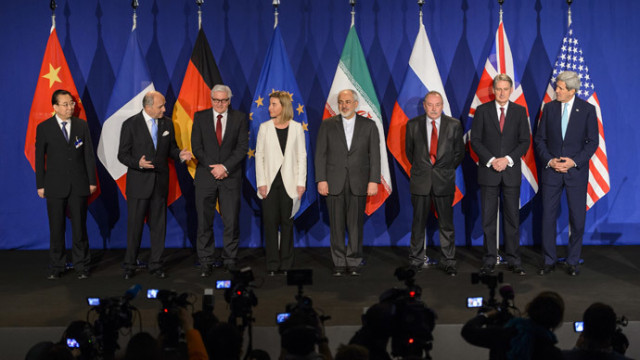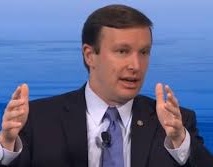Major Gaps between P5+1 and Iran on Framework Agreement
This Passover Easter weekend, the media was abuzz in speculative commentary on President Obama’s announcement in the Rose Garden on Thursday April 2nd of the P5+1 Framework for a nuclear deal with Iran. Problem is no one really knows what is involved in drafting let alone concluding a definitive technical agreement between the P5+1 and the Islamic Republic of Iran by June 30, 2015, 90 days from now. President Obama extolled the virtues of the deal saying:
Good afternoon, everybody. Today, The United States, together with Allies and Partners, have reached a historic understanding with Iran, which if fully implemented, would prevent it from obtaining a nuclear weapon, As President and Commander in Chief, I have no great responsibility than the security of the American people. I’m convinced that if this framework leads to a final a final comprehensive deal, it will make our country, our allies, and our world, safer. This has been a long time coming. The Islamic Republic of Iran has been advancing its nuclear program for decades.
Sound familiar? It should. Read the opening stanza of former President Bill Clinton on October 18, 1994, when he announced a previous nuclear framework agreement that failed to stop North Korea from eventually creating a stockpile of nuclear weapons and nuclear tipped missiles:
Good afternoon. I am pleased that the United States and North Korea yesterday reached agreement on the text of a framework document on North Korea’s nuclear program. This agreement will help to achieve a longstanding and vital American objective: an end to the threat of nuclear proliferation on the Korean Peninsula.
This agreement is good for the United States, good for our allies, and good for the safety of the entire world. It reduces the danger of the threat of nuclear spreading in the region. It’s a crucial step toward drawing North Korea into the global community.
In the words of baseball great Yogi Berra, “its déjà vu all over again.”
Today on NBC’s “Meet the Press,” host Chuck Todd interviewed Israel Prime Minister Benjamin Netanyahu who said:
“I’m not trying to kill any deal. I’m trying to kill a bad deal…The current plan “leaves the preeminent terrorist state of our time with a vast nuclear infrastructure.” It would spark an arms race among the Sunni states, a nuclear arms race in the Middle East,” the Israeli leader warned. “And the Middle East crisscrossed with nuclear tripwires is a nightmare for the world. I think this deal is a dream deal for Iran and it’s a nightmare deal for the world.”
Netanyahu stressed that when it comes to Iran’s nuclear capabilities, he prefers a “good” diplomatic solution to a military one.
He outlined such a solution as “one that rolls back Iran’s nuclear infrastructure and one that ties the final lifting of restrictions on Iran’s nuclear program with a change of Iran’s behavior” and insists that Iran stops “calling for and working for the annihilation of Israel.” He also called for further sanctions on Iran as a way to get the country to take a deal that contains no concessions.
Watch the NBC “Meet the Press” segment with Israel PM Netanyahu:
Connecticut Democratic Senator Chris Murphy, member of the U.S. Senate Foreign Relations Committee who followed Netanyahu on Meet the Press found the agreement announced by the President, “remarkable. “ He remarked that “sanctioning Iran into submission is not what the partners signed up for. When the question of changing Iran’s behavior on support for global terrorism and violations of human rights came up, Murphy basically followed the Administration line of let’s get the nuclear agreement done first. The Washington Post reported Murphy saying:
It’s true that this deal doesn’t turn Iran from a bad guy into a good guy”. “But it’s a little bit of rewriting of history to suggest these negotiations were about all of the other nefarious activities of Iran in the region. These negotiations were about ending their nuclear program, such that we can start to lift up the moderate elements … [and] talk about all these other issues.
You take this issue [the nuclear program] off the table and you empower people like Rouhani and Zarif, who may see a different path for Iran — less as an irritant, more as a member of the global community. “And you may see a pathway to solving some of these other problems (ballistic missiles, support for terrorism and human rights violations) and you can do it potentially without new rounds of traditional sanctions.
More emerged about the differences in the announcement about the framework parameters between the State Department Fact Sheet and Farsi statement of Iranian Foreign Minister Zarif. Noted Israel Middle East analyst, Ehud Ya’ari, a Washington, DC Institute for Near East Policy Fellow and Israel TV Channel 2 commentator, identified six major gaps The Times of Israel reported:
- Sanctions: Ya’ari said the U.S. has made clear that economic sanctions will be lifted in phases, whereas the Iranian fact sheet provides for the immediate lifting of all sanctions as soon as a final agreement is signed, which is set for June 30. (In fact, the US parameters state that sanctions will be suspended only after Iran has fulfilled all its obligations: “US and EU nuclear-related sanctions will be suspended after the IAEA has verified that Iran has taken all of its key nuclear-related steps.” By contrast, the Iranian fact sheet states: “all of the sanctions will be immediately removed after reaching a comprehensive agreement.”)
- Enrichment: The American parameters provide for restrictions on enrichment for 15 years, while the Iranian fact sheet speaks of 10 years.
- Development of advanced centrifuges at Fordo: The US says the framework rules out such development, said Ya’ari, while the Iranians say they are free to continue this work.
- Inspections: The US says that Iran has agreed to surprise inspections, while the Iranians say that such consent is only temporary.
- Stockpile of already enriched uranium: Contrary to the US account, Iran is making clear that its stockpile of already enriched uranium — “enough for seven bombs” if sufficiently enriched, Ya’ari said — will not be shipped out of the country, although it may be converted.
- PMD: The issue of the Possible Military Dimensions of the Iranian program, central to the effort to thwart Iran, has not been resolved, Ya’ari said.
The U.S. parameters make two references to PMD. They state, first: “Iran will implement an agreed set of measures to address the IAEA’s concerns regarding the Possible Military Dimensions (PMD) of its program.”
They subsequently add: “All past UN Security Council resolutions on the Iran nuclear issue will be lifted simultaneous with the completion, by Iran, of nuclear-related actions addressing all key concerns (enrichment, Fordo, Arak, PMD, and transparency).” The Iranian fact sheet does not address PMD.
The differences between the sides became apparent almost as soon as the framework agreement was presented in Lausanne on Thursday night. Iran’s Foreign Minister Mohammad Javad Zarif issued a series of tweets late Thursday, for instance, that protested the U.S. State Department’s assertion that the nuclear deal struck between Iran and world powers would only see sanctions on the Islamic Republic removed “in phases.”
If this weekend is an example, the controversy about the framework “parameters” await the details from the final agreement targeted for June 30th. Problem is those negotiations may extend well beyond the current deadline, perhaps may spark further negotiations and may be incapable of resolution unless the Administration caves into all of Iran’s demands. In the meantime Swiss and French trade delegations are in Tehran discussing possible deals, the Germans have already held theirs, and, of course, Russia and China, have already conducted business with the Islamic Republic. Despite Turkey’s Erdogan expressing pique at Iran’s hegemony in Iraq, Syria, Lebanon and Yemen, he will soon hold trade talks again in Tehran on more gas deals.
Thursday’s announcement sent the Tehran Stock Exchange skyrocketing Friday. Iran’s Ayatollah Khamenei, President Rouhani and Foreign Minister Zarif are smirking over their victory contemplating keeping all of its nuclear, missile and military applications under wraps. Besides they also have four bargaining chips; three imprisoned Americans and a fourth missing for eight years.
EDITORS NOTE: This column originally appeared in the New English Review. The featured image is of the P5+1 plus Iran and EU Foreign Relations Commissioner in Lausanne, Switzerland 4-2-15.



